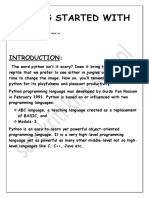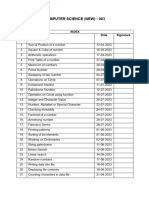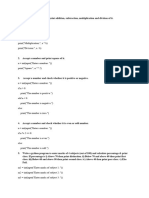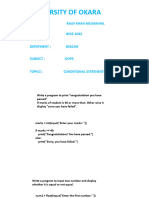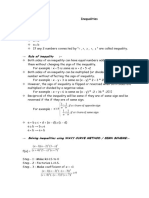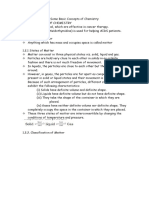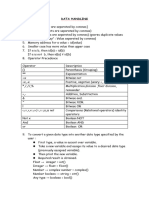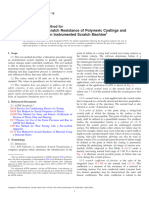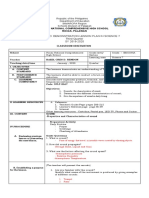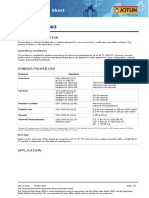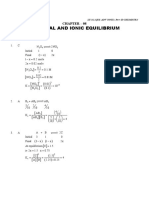0% found this document useful (0 votes)
122 views9 pagesFlow of Control Book Programs
The document contains descriptions of 16 programs that demonstrate various concepts of flow control in Python. The programs include: checking if a number is odd or even, finding the largest of three numbers, calculating sums of input numbers with and without duplicates, testing number divisibility, finding multiples of a number, calculating area/perimeter of a circle based on user choice, evaluating arithmetic expressions, sorting numbers in ascending order, identifying character types, solving quadratic equations, printing tables, calculating sums of natural numbers progressively and total, calculating factorials, summing even and odd numbers, and implementing a number guessing game.
Uploaded by
S. LakshanyaCopyright
© © All Rights Reserved
We take content rights seriously. If you suspect this is your content, claim it here.
Available Formats
Download as DOCX, PDF, TXT or read online on Scribd
0% found this document useful (0 votes)
122 views9 pagesFlow of Control Book Programs
The document contains descriptions of 16 programs that demonstrate various concepts of flow control in Python. The programs include: checking if a number is odd or even, finding the largest of three numbers, calculating sums of input numbers with and without duplicates, testing number divisibility, finding multiples of a number, calculating area/perimeter of a circle based on user choice, evaluating arithmetic expressions, sorting numbers in ascending order, identifying character types, solving quadratic equations, printing tables, calculating sums of natural numbers progressively and total, calculating factorials, summing even and odd numbers, and implementing a number guessing game.
Uploaded by
S. LakshanyaCopyright
© © All Rights Reserved
We take content rights seriously. If you suspect this is your content, claim it here.
Available Formats
Download as DOCX, PDF, TXT or read online on Scribd
/ 9





